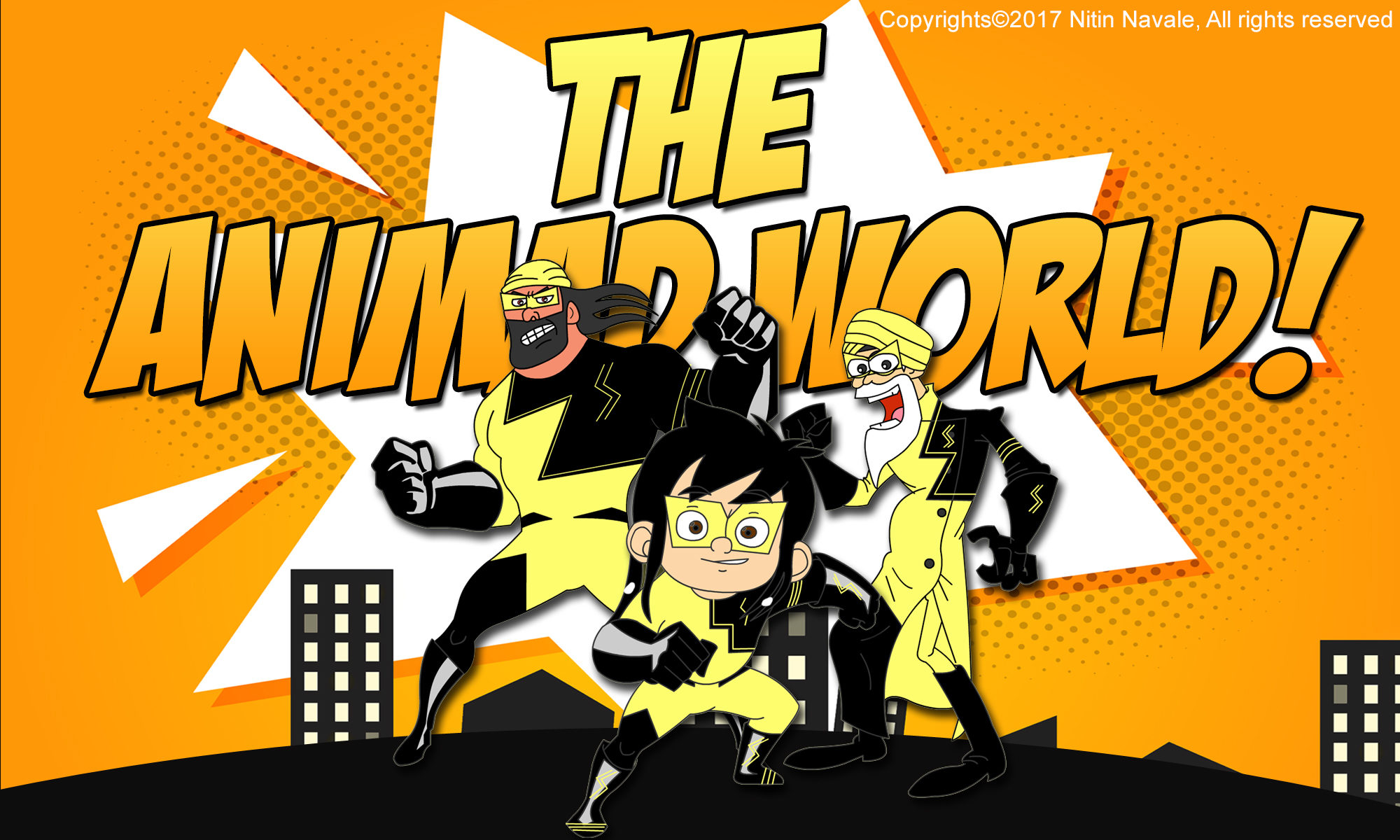CHAPTER 10
THE SENSE OF HUMOR
( The Art of Cartoon Comedy)
AND WHY DO WE STRUGGLE?
“Comedy is a serious business. A serious business with only one purpose – to make people laugh.”
― W.C FIELDS
Cartoons and Comedy are synonyms for each other. And especially children’s show goes way beyond putting a compelling story and exciting characters together. It needs the element of fun in it that has to be witty, intelligent but, at the same time, equally dumb.
Yes, the essential part of any cartoon is the jokes, and more precisely, the visual gags, in other words, a good dose of sense of humor.
Anyone who grew up in the nineties was fortunate enough to witness the looney tunes and Hannah barbara era filled with a genius-level of dumbest things that could crack up even the gloomiest person in the room.
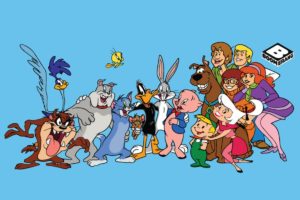
Although cartoon shows today in the west still follow the same pattern as ’90s shows, at the same time, it has progressed in bold new ways.
But unfortunately, the same can’t be said for the great Indian animated shows.
Yes, if you ask any teen or adult if they find our shows funny, they will surely laugh at the question and give you a sarcastic response.
But what are the factors that make the western shows so humorous compared to the Indian shows and make people judge you if you are a fan of one of the most prominent characters of the Indian animation industry?.
We understand that making people laugh is difficult, and that’s why western animated shows depend upon the people who make a living out of it. Yes, some of the best shows are written by professional comedians who also work on stand-up and late-night shows.
And this is the most crucial difference between them and us that hinders us from creating shows that work for all ages. Most of the animation writers in India are good storytellers, but unfortunately, they are far away from the rules of cartoon comedy and struggle with the art of gags.
Animation writing is not easy, and writers are bound by the rules of the world that they need to follow. But what I have witnessed in almost all the shows is that we shy away from the fundamental element of kid’s shows, and that is cartoon gags. And focus on the activities that are more organic or what we call natural jokes.
Even some of the best comedians like Buster Keaton, Charlie Chaplin, Steven Chow never hesitated to incorporate the cartoon comedy/gags in their line of work no matter how non-sensible it may come across.
The cartoon comedy/gags are a very tricky form of the medium as the joke does not follow the rules of the world, but the sudden shift in the situation makes you laugh.
And in India, we see that jokes are usually played down in patterns where it takes away the most vital element of the comedy, and that is “the Surprise.”
Yes, there are several ways to create a humorous gag. But one of the most effective methods is to use the element of surprise or say something unexpected. You can say something that causes the person to think you are going to say or do but ends up telling or doing the opposite of it.
For instance, here is a gag we used in an upcoming chase comedy called B Bah Boo. You see a butterfly hovering around Chameleon as it waits in ambush.
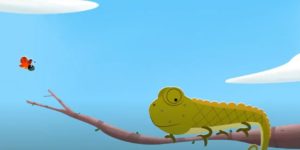
And as soon as the tiny butterfly reaches near the Chameleon…
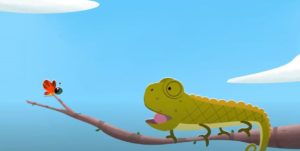
“SNAP,” the butterfly sticks its tongue out and swallows the Chameleon, a hundred times larger than its size.
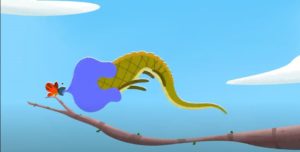
I am sure it took you by surprise, isn’t it?
So basically, it’s about building the expectations and then breaking them, and the whole Looney tunes relied on this principle. We often see a character attacking the other one, more often the weak one, just to get harmed due to its ineptitude or failure of their products.
Sure, logic is a big part of cartoon gags as well, but just like anything else in this art form, we need to push that logic at the extreme level and switch it at the least expected moment.
So if we want our audience to laugh instead of cringing upon what they are seeing, keep in mind to surprise them to a level that they use their own mind to solve the joke, keep it short and snappy, don’t spend too much time explaining it and quickly move on to the next scene.
But in most Indian shows, we see the same types of gags forced into the scenes to balance the humor quotient, which generally involves someone crushing on someone from the top, characters bumping into each other, and the sidekicks hiding away in the face of terror. Sure, this can be played well and make people chuckle, but it is often poorly timed, and the choppy animation takes the fun out of it.
But in the end, we understand that comedy is subjective; the things that make me laugh might not work for you, and vice versa, it could be very exhausting for the writers to do something they aren’t equipped with.
So the serious question is, how do we find the missing sense of humor from our shows that can make people laugh despite their age, gender, or culture?
Well, the simple answer to this complex question is what we discussed earlier in the chapter. And that is by bringing people on board who understand the art of writing gags on all levels.
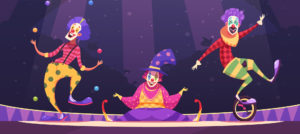
Cartoon Comedy, like any other form, comes naturally to a few fortunate ones. When someone who isn’t blessed with this skill attempts to write something funny ends up doing the opposite, that comes across forced, unnatural, and at worst, totally cringe.
But the biggest challenge with this is finding people who are not only naturally funny but passionate about animation writing as well. Because without the right set of passion, it won’t be very easy to find the right balance, and without the right balance, it won’t be very easy to earn the respect of the audiences looking for better content.
But, it is just not limited to our writers having a sense of humor. It’s essential to encourage and educate everyone else involved in the storytelling process, right from the directors to producers to broadcasters, about the art of cartoon comedy and gags.
Because in the end, it’s not just about focusing on the story, the characters, and the look and feel of the show, but it’s about putting them all together with an element of surprise.
